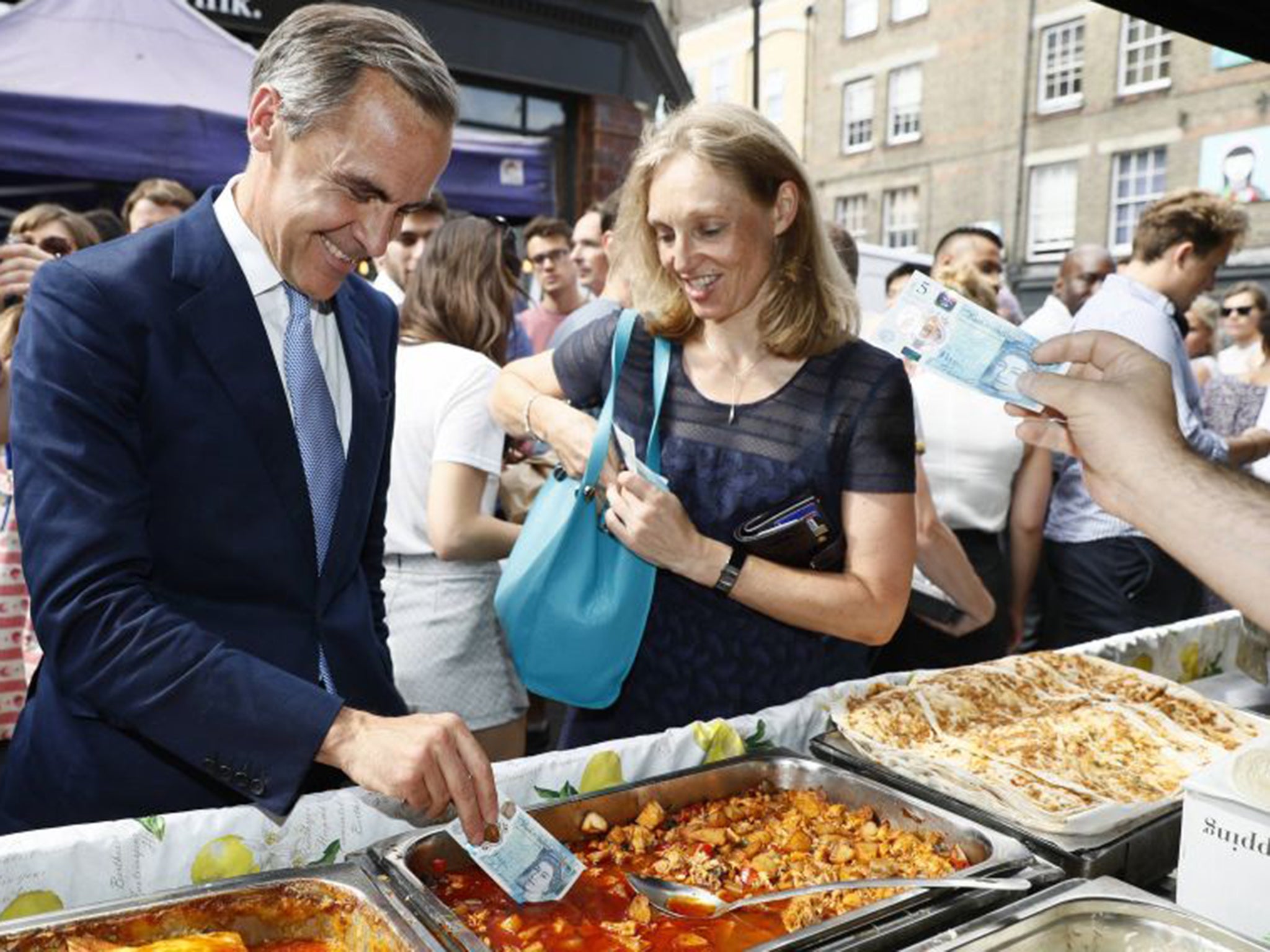Don’t blame Brexit for the plunging pound and rising inequality – it’s the fault of Mark Carney
Quantitative easing pushes up the price of assets. The problem is you and I don’t normally own the assets in question. The financial sector is enriched while everybody else gets left behind

In November 2012, the then Chancellor George Osborne announced that Mark Carney would be the next governor of the Bank of England, describing the Canadian as “the outstanding central banker of his generation”. Four years on, with Carney announcing he will leave his post in 2019 – two years early – let’s consider some of his questionable achievements.
The Bank’s mission, according to its website, is “to promote the good of the people of the United Kingdom by maintaining monetary and financial stability”. That means keeping the pound stable, making sure inflation or deflation don’t get out of control (2 per cent inflation is the stated target) and keeping the financial system – that is, banking – running and properly regulated.
On 1 July 2013, when Carney took charge, a pound bought you US$1.53 and it stayed within touching distance of that until the Brexit vote. In a typical year, a 10 per cent swing would be considered sizable, so a 20 per cent drop to today’s price of $1.22 is not to be sniffed at.
Brexit, to which Carney was opposed, is the obvious immediate cause of that drop. But Carney and the Bank of England have played a role in the pound’s demise since the EU referendum result.

Over the summer, the pound had begun to stabilize. At $1.34, it was creeping back towards fair value when Carney made the surprise announcement to slash interest rates and implement another £60bn of quantitative easing (QE). It triggered a sharp sell-off.
The aim of low rates and QE is to weaken the currency and prop up asset prices in the name of financial stability – never mind that it’s only the few who happen to own the assets that are being propped up. It is deeply baffling why the Bank of England would want to weaken the currency at such a vulnerable time.
Towards the end of August, sterling began to creep back up again. But when Carney came out in September and said he was serene about the decision to cut rates, reality set in, and the pound turned back down.
That marked the top. A week later, the Bank announced a list of 100 companies, including Apple, whose bonds it would be buying with the £60bn it had just created. Why is the Bank buying Apple bonds? Needless to say, the sell-off accelerated.
By the time of Theresa May’s first Conservative Party conference speech as Prime Minister, it had fallen to $1.26 and then we got the flash crash. May copped the flak for the falls with her Brexit rhetoric – but rhetoric only does so much; £60bn of newly printed money has a greater impact.
That decision to cut rates and implement QE created instability, the very opposite of the Bank’s mission.
Next we have the 2 per cent inflation issue. The evidence of Japan is that low interest rates, counter-intuitively, cause deflation. Since late 2013 inflation in the UK has been below 2 per cent and by 2015 we were slipping into negative territory. Yet still the Bank kept interest rates low. Again, mission not accomplished.
The final aspect of the Bank’s mission is to “promote the good of the people of the UK”. Low interest rates cheapen the cost of debt. It means the assets against which money is borrowed (houses, especially) become cheaper to own and thus their price gets pushed up. Great if you happen to own the assets; rubbish if you don’t. Ultimately your money buys you less, so low rates hurt those on low salaries, as well as savers.
QE is the practice of printing money and using it to buy certain financial assets. Again, its effect is to push up the price of assets. The problem is you and I don’t normally own the assets in question. Banks do. The financial sector is enriched while everybody else gets left behind.
If you want an explanation for the vast inequality that has sprung up in this country since the financial crisis of 2008, low rates and QE are a key cause. Unaffordable housing is as much a function of the Bank of England’s monetary policy as it is lack of supply. If rates were higher, houses would be cheaper. It really is that simple.

Carney knows perfectly well that low rates penalise labour and reward capital and assets. Yet in his nine years a central banker, he consistently pursued a policy of low rates – in Canada, where he took them from over 4 per cent to 0.25 per cent, and here in the UK, where they have remained steadfastly low. That tells you all you need to know. He either doesn’t understand what that means, or he doesn’t care.
Carney promised that he would raise rates if unemployment fell below 7 per cent. When it did so, he looked the other way.
Is the vast inequality we have in the UK for the good of the British people? I suggest not.
Dominic Frisby is a financial writer and comedian. His latest show is ‘Let’s Talk About Tax’
Join our commenting forum
Join thought-provoking conversations, follow other Independent readers and see their replies
Comments
Bookmark popover
Removed from bookmarks